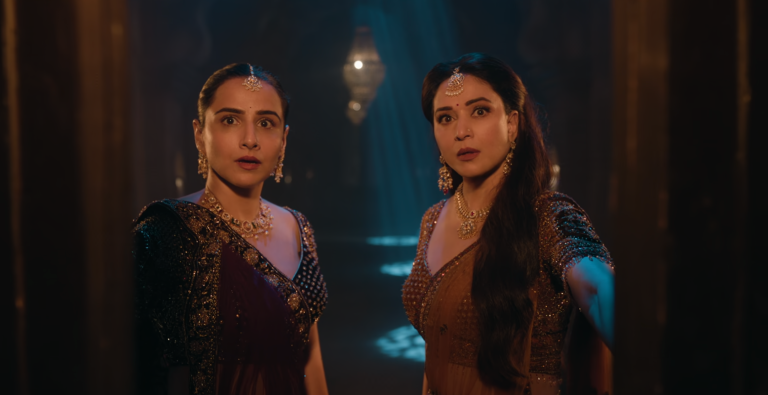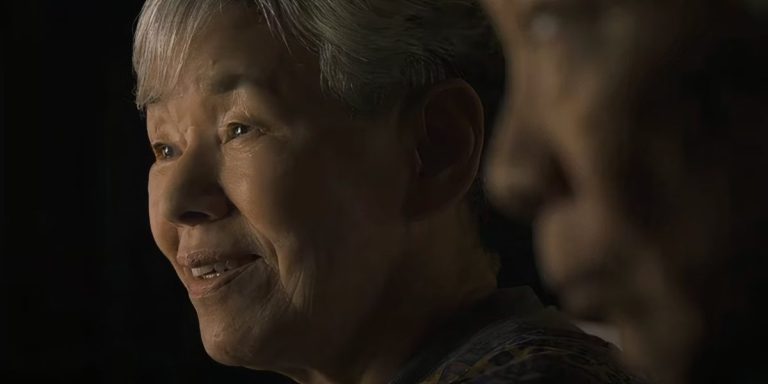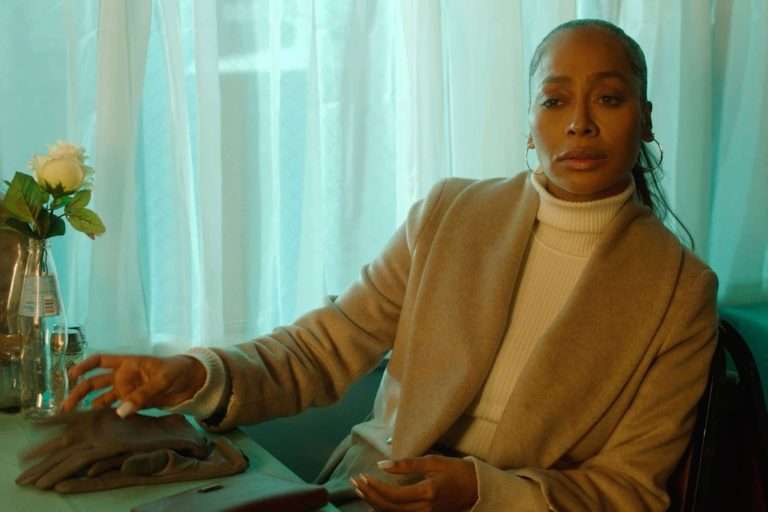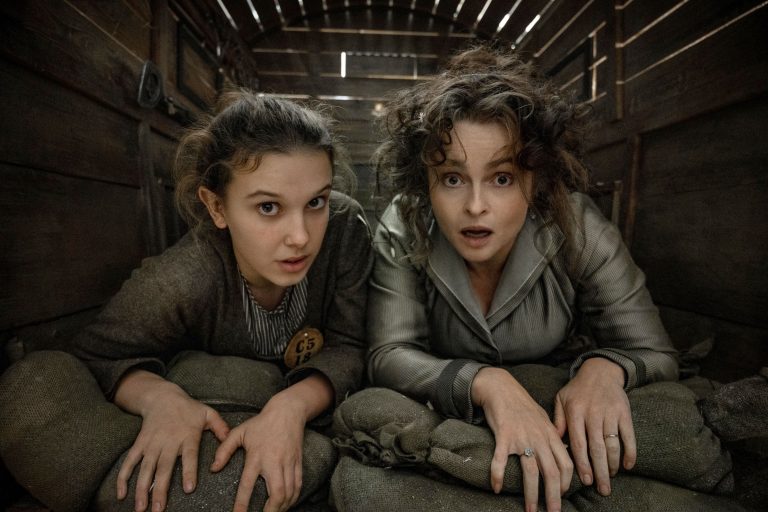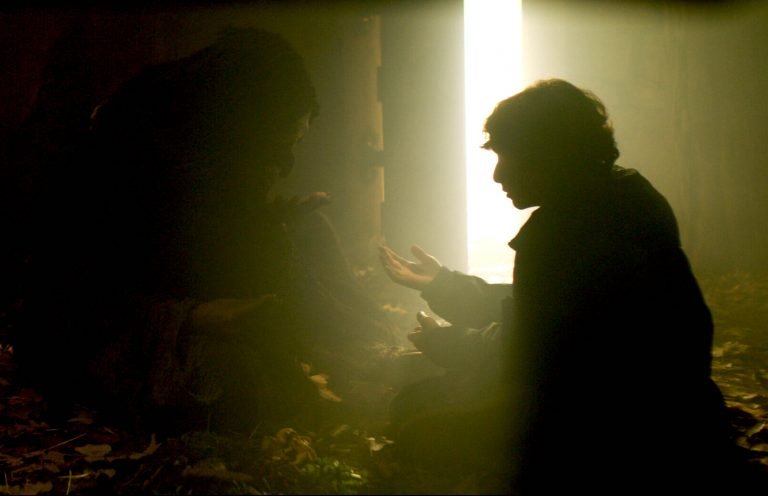Guy Ritchie’s Wrath of Man (2021) is more than a lean, muscular heist thriller. Beneath its hard-edged surface, the film unfolds as a brooding meditation on vengeance, fractured fatherhood, and the emptiness of retribution. Structured in four disjointed acts, it deliberately fractures time to peel back the truth behind Patrick Hill—an armored-truck guard who is anything but ordinary.
At its heart lies Mason Hargreaves (Jason Statham), a ruthless London crime boss hiding under the alias “Patrick Hill.” When his son Dougie is killed during a botched armored-truck heist, Hargreaves launches a cold, relentless crusade to track down those responsible. The final act crystallizes the film’s central enigma: Why does Hargreaves kill Jan with such brutal precision—executing him shot by shot, as though vengeance itself must be delivered one bullet at a time?
Spoilers Ahead
Wrath of Man (2021) Plot Summary & Movie Synopsis:
Who is Patrick Hill, Really?
When Patrick ‘H’ Hill joins Fortico Security, he appears like an unremarkable recruit, barely scraping through firearm tests, quiet, and blending into the background. His coworkers, like ‘Boy Sweat’ Dave and Dana Curtis, quickly sense something off about him. But his real identity is Mason Hargreaves, a notorious underworld kingpin. His façade unravels the moment he takes down a crew of armed robbers with surgical precision. Hill’s uncanny skill and merciless execution prove he’s no rookie; it’s the mask of a man with years of violence behind him. Hargreaves’ infiltration of Fortico isn’t about earning a paycheck. It’s about hunting his son’s killer from the inside.
Why Does Hargreaves Go on a Killing Spree After Dougie’s Death?
A flashback reveals the turning point: Hargreaves was surveilling an armored truck route with his son Dougie when another gang of robbers struck. Hargreaves, powerless, watched as Dougie was executed by Jan, one of the rogue Afghanistan veterans turned thieves. For Hargreaves, Dougie’s murder isn’t just a personal tragedy; it’s an existential humiliation.
A crime lord who controlled men, weapons, and money couldn’t protect his own child. His response is scorched earth: he orders his crew to slaughter every known armored-truck thief in Los Angeles. Innocence and guilt blur in this rampage. His grief mutates into rage, showing that his need for vengeance outweighs reason. Agent King, a morally flexible FBI officer, tacitly allows it. He sees Hargreaves as a necessary evil, a criminal who can thin the herd of other criminals. King’s silence is as much about pragmatism as it is about fear; even law enforcement bends around Hargreaves’ shadow.
Why are the Veterans Committing Robberies?
The ‘bad animals’ are a unit of disillusioned ex-soldiers led by their sergeant, Jackson. Disgusted with civilian life and lured by easy money, they channel their military discipline into heists. But unlike Hargreaves’ organized criminal empire, the veterans are reckless wolves. Their operations escalate from small-time grabs to high-stakes armored-truck robberies.
Jan, the most unstable of the group, reveals himself as the moral rot within them. His impulsive decision to shoot Dougie is unnecessary, cruel, and destabilizing. This single choice seals the fate of the entire crew. Without Jan’s needless violence, they might have gone unnoticed. Instead, they attract the wrath of a man far more dangerous than the law.
Also Read: 10 Best Guy Ritchie Movies, Ranked
Why is Bullet Helping Jackson’s Crew?
Bullet, Hargreaves’ colleague at Fortico, plays both sides. To the guards, he’s a friendly veteran trainer. Secretly, he’s the mole feeding intel to Jackson’s crew. Bullet’s betrayal stems from greed and a desire for survival. As an aging employee stuck in a dead-end job, aligning with Jackson promises money and power. His mistake, however, is underestimating Hargreaves. By confessing his double game to Hargreaves and trying to coerce him into silence, Bullet unknowingly signs his death warrant.
What Happens During the Black Friday Heist?
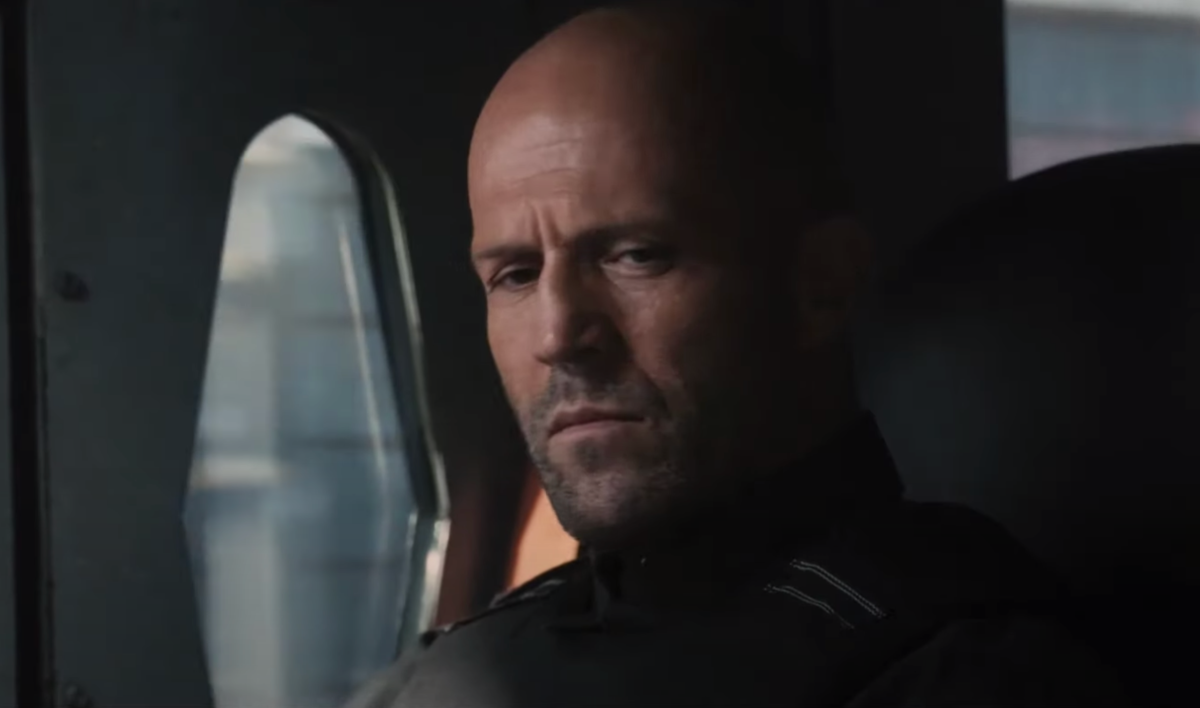
The veterans’ ‘big score’ robbery at the Fortico depot spirals into carnage. Employees fight back, alarms trigger chaos, and Hargreaves unleashes his fury. Hargreaves kills most of Jackson’s crew in the siege. Jackson himself dies at the hands of hostages. Bullet and Jan manage to escape, but paranoia and greed consume them. In a fitting twist, Jan kills both Jackson and Bullet to keep the fortune to himself. But the money isn’t the treasure anymore. For Hargreaves, vengeance is the prize.
Why Does Hargreaves Kill Jan the Way He Does?
In the chilling final scene, Jan returns home, believing he’s safe. He discovers that one of the money bags is bugged with a phone. Hargreaves has tracked him down. The confrontation isn’t quick. Hargreaves recites Dougie’s autopsy report aloud: liver, lungs, spleen, and heart. Each word is punctuated by a bullet fired into Jan’s body, mirroring the exact wounds Dougie suffered. This isn’t random sadism. It’s ritualistic justice. For Hargreaves, killing Jan this way isn’t about efficiency; it’s about balance.
He makes Jan feel the same pain, in the same order, that Dougie endured. From a psychological lens, this is trauma reenactment. Hargreaves cannot undo his helplessness from that day, so he stages a reversal. By controlling Jan’s death, he symbolically rewrites the past. This time, he is no longer powerless. But vengeance is hollow. After killing Jan, Hargreaves abandons the stolen money. He no longer cares about wealth, reputation, or empire. His only mission was Dougie. With that complete, he reports back to King: ‘It’s done.’
Wrath of Man (2021) Movie Ending Explained:
Why Does Hargreaves Kill Jan in Such a Methodical Way?
At first glance, Hargreaves’ execution of Jan in “Wrath of Man” feels like the ultimate revenge fantasy, a father punishing the man who murdered his son. But Guy Ritchie layers the moment with ritual and psychology. Hargreaves doesn’t simply shoot Jan; he reenacts his son’s death from Dougie’s autopsy, bullet by bullet, forcing Jan to experience the same wounds in the same order. The question then becomes: why does Hargreaves choose this methodical form of vengeance rather than a quick death?
The answer lies in trauma and the psychology of control. When Dougie was murdered, Hargreaves, despite being a feared crime lord, was utterly powerless. He watched helplessly as his son’s life was taken, and that helplessness became the defining scar of his existence. Psychologists describe this phenomenon as trauma fixation: when a person is unable to move past the moment of trauma, their life, choices, and identity become frozen around it.
For Hargreaves, every breath after Dougie’s death is in service of returning to that moment and rewriting it. By killing Jan in the same way his son was killed, Hargreaves performs a distorted act of symbolic reversal. He can’t undo the event, but he can flip the power dynamic. What was once his son’s pain is now Jan’s. This is not justice in the legal sense, but retributive justice shaped by grief, a father’s attempt to balance the scales through symmetry of suffering.
Another layer to this is the psychological mechanism of identification with the aggressor. This occurs when a trauma victim, unable to reconcile their helplessness, begins to mirror the behaviors of the perpetrator as a way of regaining control. Hargreaves once watched Jan embody pure cruelty; now he becomes that same cruel executioner.
It’s not just about revenge; it’s about becoming the very thing he once feared, because embodying the aggressor feels safer than remaining the victim. In his mind, powerlessness dies with Jan. And yet, the hollow ending makes clear that vengeance provides no closure. After the execution, Hargreaves abandons the stolen fortune. The money, once the motivating prize of the soldiers-turned-robbers, means nothing to him. His act wasn’t about gain; it was about ritualized loss.
What remains is silence, not catharsis. Psychologically, this reflects the emptiness of revenge. While it may fulfill a temporary compulsion, it cannot restore the lost object of love. Dougie is still gone, and Hargreaves is left with the void. In the end, Hargreaves doesn’t walk away as a victor, but as a man consumed by wrath.
His life has collapsed into a single identity: avenger. Where others might turn to healing, Hargreaves rejects it, choosing instead to let grief harden into violence. The meticulous execution of Jan isn’t a triumph; it’s the clearest sign that Hargreaves is stuck forever in the moment his son died. His silence as he departs underscores that what we’ve witnessed is not resolution, but the psychological imprisonment of a father who can never move on.

